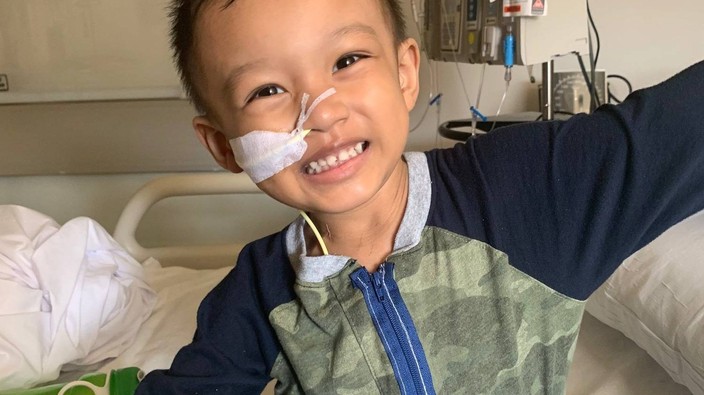was the stem cell transplant from a donation or from a family member?
so, family is most likely not going to be a match. even my little one, lily, was just 25 per cent [matched]. so they’ve had to rely on finding a donor and what they found for him was umbilical cord blood. it was already in the donation bank and they had to make sure it was enough of a match; nothing was 100 per cent. it was just a little off from 100 per cent. it would have taken two to three months to find an actual person donor for him, as opposed to a blood cord that was already in the bank. and because of the rarity of his jmml, they had to act fast and they decided that the cord was the best option for him.
what was it like when you heard there was a match for xavier?
oh, i was relieved. yeah, i cried because i was so happy. this was the answer we’d been waiting for. we were so uncertain for so long, felt lost for so long. it was like, what are we going to do if there’s no donor for him? no one to match him and no one’s to save his life? it was crazy enough to know that we couldn’t even save his life if we wanted to and we had to rely on an outside source.
what was the process like xavier getting the transplant?
he got one full week of his chemo, like intense chemotherapy and medications alongside of it to prevent a lot of things from happening during that process. it knocks out all the cancer cells in his body, so when transplant day came, which is one full week, he got it through an iv. so, the new stem cells just flow through the iv into his body and his body will take some time to create new healthy cells. hopefully during this time while he recovers, his body doesn’t reject those new cells. so, there’s a lot of medications he’s taken to make sure that that doesn’t happen and how much technology has advanced is amazing.
 7 minute read
7 minute read









